Thank you for visiting! By the way… any links on this page that lead to products on Amazon and other stores/partners are affiliate links Aquarium Store Depot earns a commission if you make a purchase.
So, you’ve brought your FINNY friend home, and looking to fill the tank with the best water for a fish? At some point, you’ll think about filling your fish tank with distilled water, because let’s be honest: Distilled water is the cleanest, safest water with little to no contaminants.
So, you’ve brought your FINNY friend home, and looking to fill the tank with the best water for a fish? At some point, you’ll think about filling your fish tank with distilled water, because let’s be honest: Distilled water is the cleanest, safest water with little to no contaminants.
We will discuss this later in this article. But first, let’s walk you through the basics of distilled water and how it is different from tap water. Before we can answer if you can you use distilled water in a fish tank, let’s dive into what is distilled water first.
What Is It?
As we know, water has three states; liquids, solid, and gas. The distillation process involves boiling the water to an extend it starts evaporating. The water is then allowed to cool down at low temperature and condensed back into its original liquid form.
This water distillation process eliminates germs, bacteria, other impurities, and minerals from water, leaving behind pure distilled water1.
It was once a misconception that distilled water heated faster than normal tap water. Therefore, it was dangerous to consume back then. However, this theory was ruled out and it was confirmed that distilled water is like regular tap water. If you want a breakdown on how the distillation process works, check out the video below by Pure Water Distllers.
Today, distilled water is used in numerous applications: batteries, steam irons, cooling systems for vehicles, and sometimes in aquariums.
Is It Safe To Use?
As mentioned above, using distilled water in aquariums is becoming popular day by day because distilled water doesn’t contain chemicals mostly found in tap water such as Chlorine and Chloramine. So, novice aquarists believe distilled water is the safest option for aquariums.
However, it is not recommended to use an exclusive supply of distilled water in your fish tanks. Your aquatic life demands certain minerals for their survival. And there’s no source of those essential minerals in distilled water for your fish.
Distilled water also poses a negative impact on the water pH levels; as minerals in water helps maintain the pH levels in your aquarium, which is essential for the survival of your fish. distilled water lacks minerals like Calcium that won’t help buffer ph and water hardness.
But there are instances where pure distilled water can be used in the tank water.
- If your aquarium is losing water, pure distilled water can be used to top off.
- Distilled water can be added to reduce the water hardness of normal tap water.
Whatever the case may be, distilled water has zero essential minerals in it to sustain the aquatic life as minerals are essential for aquatic plants and life and also help buffer ph.
But you can still use distilled water in your fish tanks by mixing it with mineralizing supplements or water that help your fish stay healthy and stabilize water pH levels as well.
Can You Use Distilled Water In A Fish Tank?
Freshwater fish and plants, both require water loaded with natural minerals, which is found in tap water. The tap water in the freshwater fish tanks allows the aquatic plants to photosynthesize. Additionally, many invertebrates including shrimps need these essential minerals to grow and thrive happily in your fish tank.
If you’re planning to use distilled water in a freshwater fish tank, measures should be taken to maintain mineral balance to stabilize ph levels and water hardness accordingly. If there’s no need to use distilled water in freshwater fish tanks, I suggest avoiding using it. That’s because on one end, it gives you more control over nutrient input and output, on the other hand, it gets very costly and can be difficult to manage specially for novice fish keepers.
Contrary to distilled water, I highly recommend using tap water in freshwater fish tanks because it’s already rich in all the beneficial minerals required for a healthy aquarium. Treated tap water with a de-chlorinator like Seachem Prime will be fine for most aquariums.
Seachem prime is a easy to use and affordable choice when it comes to remove chlorine and chloramines from your tap water. Highly recommended!
If you venture into planted tanks, discus fish, and saltwater tanks, remineralized distilled water can be a consideration.
Should you use Tap Water for Saltwater?
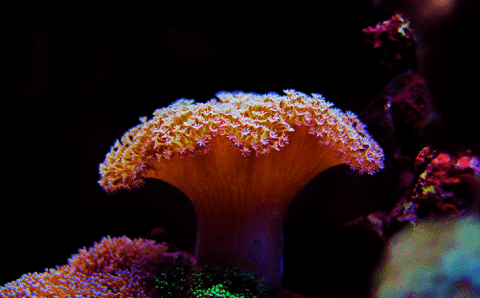
Aquarium experts are usually reluctant to use tap water in saltwater tanks. That’s because the water parameters of saltwater aquarium need to be precise than a freshwater aquarium and many unknown nutrients enter the tank water and cause unnecessary problems.
The water parameters in saltwater: Salinity, pH, Carbonate hardness, Phosphates, Calcium, etc. However, the major problem in saltwater is the levels of these components can fluctuate on and off, creating instability and leading to algae problems in the tank water.
Not only this, but tap water introduces many other impurities that can mess up with your aquarium ecosystem. Therefore, many seasoned aquarists choose other reliables sources of water such as distilled water, reverse osmosis water, or reverse osmosis deionized (RODI) water, other than tap water.
How to Use In Your Tanks?
Suppose you own a freshwater fish tank and you know all the consequences of using distilled water in a freshwater aquarium. But still, you want to use distilled water. Sure, you have your reasons. And yes, you can use distilled water and NOT harm your fish by following these precautionary steps. Following these steps will prevent a fatal effect on your aquarium health.
Re-mineralized
The minerals in tap water create a healthy and stable environment for your fish. Therefore, to make distilled water safe for your fish, you first need to remineralize it.
How to Remineralize for tanks
There are numerous ways you can remineralize distilled water for a fish tank.
Mixing in Epsom Salt, Calcium Chloride, and Baking soda
This is one of the best and most cost-effective ways of remineralizing distilled water.
All the above-mentioned nutrients work in a rhythmic pattern to make your fish tank a living heaven for your fish.
- Epsom salt helps raise the magnesium level in distilled water
- Calcium chloride ensures proper osmotic balance in the aquarium water by bringing the crucial minerals
- Baking soda helps raise the pH levels of distilled water and ensures a stable ph.
Adding water conditioner, Baking soda, and Acid Buffer
Another easy method to remineralize distilled water is taking some water conditioner, containing essential minerals. Add baking soda so the pH levels of distilled water can be raised, and then an acid buffer to bring down the pH levels by 7.
Add Seachem Equilibrium or Shrimp Mineral (Recommended)
For freshwater tanks, adding Seachem Equilibrium in distilled water to remineralize it, does wonders.
For this, I recommend using a commercial remineralize that comes with instructions for proper usage and dosage to avoid inconvenience.
A great remineralizer for freshwater tanks. Best used with RO, RODI, and distilled water. Completely aquarium safe
And if you’re looking to remineralize distilled water for a shrimp tank, I strongly recommend using shrimp mineral to add essential minerals to the tank water for your healthy and happy shrimps.
Editor's Choice
The go to for remineralizing your source water. Highly recommended for all shrimp tank setups
A gentle reminder:
- Never use only distilled water in your fish tank as this would harm the fish. They possess a selectively permeable membrane which may lead to a trauma (caused by osmosis) when placed in distilled water. A good example of fish that is highly susceptible to such trauma is are Betta fish.
Proper tank and water maintenance
When changing the water in your fish tank, you’ll need to be familiar with some of the tips I provided. This will help preserve the lives of your fish and the tank in which they are kept.
Make sure to clean your tank when the need arises or you might just be harboring a foreign pathogenic species. The good thing about this is that you don’t need to visit an expert in order to get it done. Just ensure that there are no leakages before draining the water in your fish tank so that they don’t flow into a nearby stream when doing this!
FAQS
Is This Type Safe For Fish?
On it’s own, distilled water is not safe for fish. Distilled water lacks trace elements and materials that are essential to the lives of your aquatic inhabitants. You can use a remineralizer like Seachem Equilibrium for freshwater tanks or marine salt mix for saltwater tanks to get these missing elements back into your water.
What Water Is Best?
For freshwater tanks, the best for the money is tap water treated with a decholorinator. For planted tanks or sensitive fish like Discus Fish, RO or distilled water that is mineralized work great. For reef tanks, RODI water is the best.
Can I Top Off My Tanks With this type of water?
Yes, you can top off your fish tank with distilled water. Trace elements and minerals remain in your aquarium when water evaporates. You are just replacing the lost water, which makes distilled water okay to use for top off.
Is Spring Water Better For Tanks?
Distilled Water that is remineralized would be a better choice. Spring water’s make up can differ from brand to brand, which can cause shock to your fish. Distilled will be a more consistent source – just remineralize it.
How Do You Remineralize Water?
You can purchase a remineralizer like Seachem Equilibrium for freshwater tanks. For saltwater tanks, marine salt mix will remineralize your water.
Final Thoughts
So, when shouldn’t you consider filling your fish tank with distilled water?
Never use distilled water only when you’re changing water in your fish tank!
I hope you got that clearly, right? The reason for this is because of the immediate change in pH that this will cause and the lack of minerals essential to your fish’s health. Avoid a catastrophe by remineralizing your distilled water if you decide to use it. If you have any questions, leave a comment below and let’s start a conversation. Thanks for reading!
- About the Author
- Latest Posts
I’m thrilled that you found Aquarium Store Depot! Here you’ll find information on fish, aquariums, and all things aquatics related. I’m a hobbyist (being doing this since I was 11) and here to help other hobbyists thrive with their aquariums! I adhere to a high quality Editorial Process and Review products with real life field usage and practical analysis.

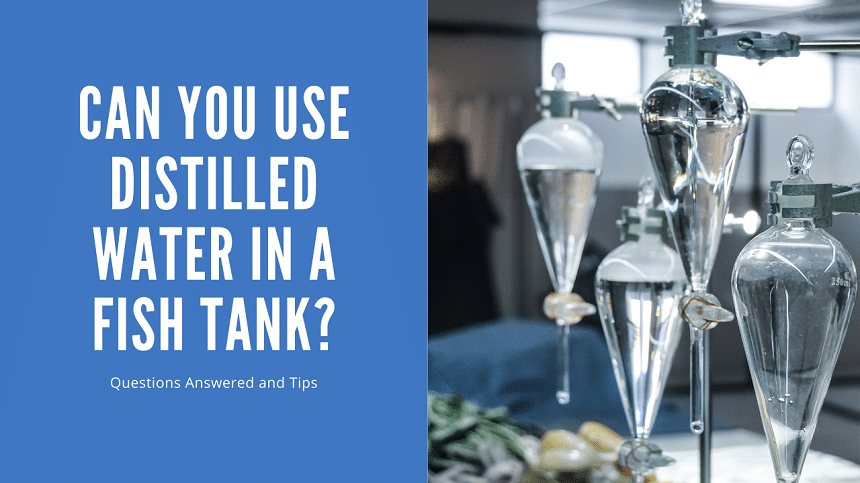
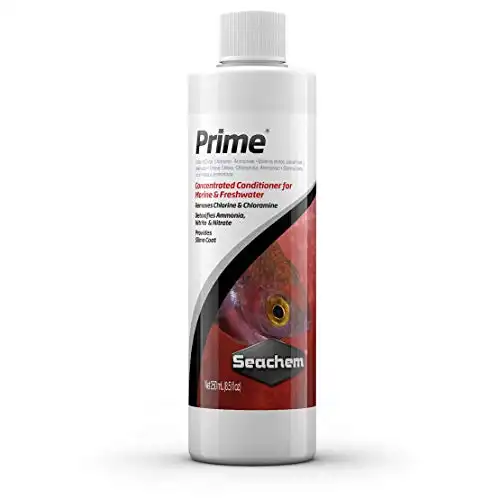
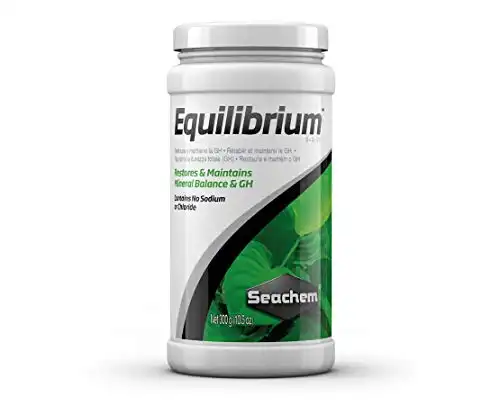
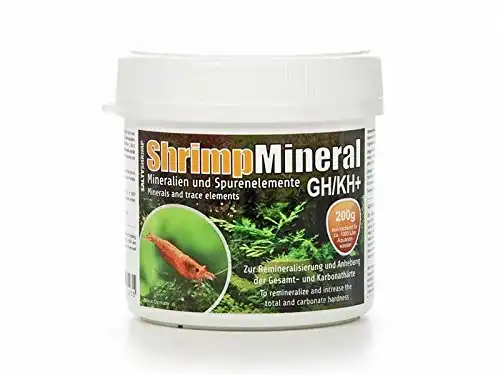




Hello! Could you tell me the ratios for remineralizing the water with epsom salts, calcium chloride, and baking soda? How much of each per gallon?
Thank you so much!
Hi there. I don’t use any of those substances when trying to increase TDS. I prefer remineralization additives meant for aquariums. Also, the amount is dependent on the TDS range you need for the fish or inverts you want to keep. You’ll need to know the type of fish and inverts you want to keep than adjust the TDS range to their perferences.
hi…we have a 55 gallon freshwater aquarium with tetras, gouramis (sp), 1…”WELL fed” goldfish, and 2 tank cleaners (not plecos). We use an Aqueon quiet flow canister filter 300. For substrate, we have flat back glass marbles and some glow rocks, and just a few fake plants. We keep the tank at about 72-76°. We HAVE to buy bottled water, and have been using “Niagra Putified Drinking water” (found at Dollar tree)
For the last couple of months, no matter how often we change the water, clean filter, ect…Ice can’t get it clean! it’s Ugly, algae GREEN!
WHAT an I doing wrong? The tank has been up for 2 years, and Until the last couple of months, had no problems keeping it clean. We haven’t done ANYTHING DIFFERENT! PLEASE HELP!!
Sorry for the LONG explanation, but I wanted to give you all the info I could, in order to get the best advice/diagnosis possible!
Thank you for your time!
Tammy
you can also email me at the address provided
Hi Tammy,
Have you tested your nitrate and phosphate levels? They could be high that could be what is causing your issue. Is the tank in direct sunlight and how often do you clean the tank?
Hello! Great article. I have a betta fish. As the water gets lower I would like to top it off. I know I should treat the water with conditioner and aquarium cleaner. I won’t use all my water but can I use the leftover treated water to top it off even though it’s been sitting in the bottle for a few days?
Long question but very hard to explain. Thanks!!!
Hi Rose,
You can use treated water in a container. A lot of saltwater fish keeps do this with top of containers. I think this is fine as long as the water is treated. I’ve also personally used purified drinking water in a pinch. It has a adequate enough of TDS for us to drink it and is safe for fish. I typically use bottled spring water.
Hi Mark, I greatly appreciated your article here. I am looking to start a new planted tank using Fluval substrate for plants and shrimp. Is conditioned tap water sufficient to fill and cycle or would it be better to used distilled water at first since the substrate will also contain nutrients? I don’t intend on placing my betta and shrimp in there for a month or so. Thanks so much!
Hi Therese. It’s going to depend on your tap water. I would get a TDS meter and test it. Check out the TDS ranges in my freshwater shrimp post and compare the results to that. If you are out of range, you should go with distilled and materialize it or consider an RO unit.
Hi my name is Jerry
This is my first aquarium, I test my water once a week normally on weds. Everything is good except my Hard water levels GH and KH. We have already lost 4Angel fish. I have countless videos and talk to several people who work in local aquarium stores or pets stores. Can I replace 20gallon of the tank’s water with 20 gallons of distilled water or is that to much. How can I solve this hard water issue
Hi Jerry,
The best way to solve a hard water issue is to use distilled or RO water. Then supplement the water as needed to the desired TDS using a solution like Seachem Equilibrium. Driftwood like manzanita or peat moss work for softening the water
I have had a small tank for many years and do a partial water change or top up every few weeks using tap water. I have live plants and the fish are always healthy and breed in the tank. After a water change my tank suddenly developed black algae over the plants and rocks etc., in a couple of days, and some of the fish were showing signs of swim bladder problems and two have died. It was suggested that this may be caused by too much phosphate in the water. I tested the water and it had a phosphate level of 10. I tested the tap water and it also had the same phosphate level. I have been using Tetra Phosphate remover to try and get a better balance but have had no success as I am also using phosphate rich tap water to top up or do a water change, I wanted to try to use Distilled water to get the level down and then use part distilled and part tap water to keep it down. Would this work?
Hi Janet,
If your situation it would be best to change the source of your water. Distilled water will work, as long as you remineralize it. Another option would be RO water. Bad source water is a typical cause for BBA. You will keep getting it until you cause your source of water. Some tap water sources just aren’t good for planted tanks.
Thank you for your help and advice. Can you recommend a product to remineralize the water easily? An internet search states you should use a mixture of calcium chloride, Epsom salt, and baking soda – but no indication of how much to put in.
My daughter had a much larger tank than mine and exactly the same thing happened to her – as we both use the same source of tap water it seems that something must have suddenly changed with the companies treatment of the water. Sadly all of her fish, apart from the Plec died.
Hi there. Seachem Equilibrium should do the job for you. Just follow the instructions on the label and you should be good to go.